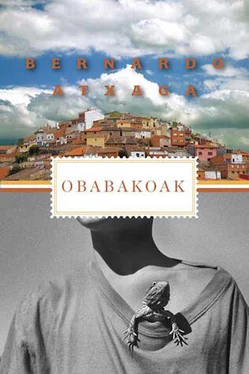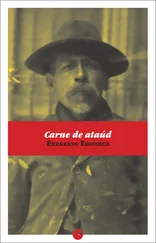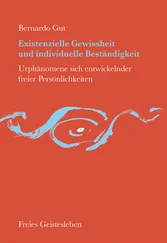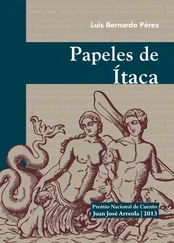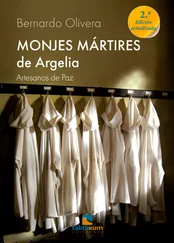Bernardo Atxaga - Obabakoak
Здесь есть возможность читать онлайн «Bernardo Atxaga - Obabakoak» весь текст электронной книги совершенно бесплатно (целиком полную версию без сокращений). В некоторых случаях можно слушать аудио, скачать через торрент в формате fb2 и присутствует краткое содержание. Год выпуска: 2010, Издательство: Graywolf Press, Жанр: Современная проза, на английском языке. Описание произведения, (предисловие) а так же отзывы посетителей доступны на портале библиотеки ЛибКат.
- Название:Obabakoak
- Автор:
- Издательство:Graywolf Press
- Жанр:
- Год:2010
- ISBN:нет данных
- Рейтинг книги:3 / 5. Голосов: 1
-
Избранное:Добавить в избранное
- Отзывы:
-
Ваша оценка:
- 60
- 1
- 2
- 3
- 4
- 5
Obabakoak: краткое содержание, описание и аннотация
Предлагаем к чтению аннотацию, описание, краткое содержание или предисловие (зависит от того, что написал сам автор книги «Obabakoak»). Если вы не нашли необходимую информацию о книге — напишите в комментариях, мы постараемся отыскать её.
Obabakoak
The Observer
Obabakoak — читать онлайн бесплатно полную книгу (весь текст) целиком
Ниже представлен текст книги, разбитый по страницам. Система сохранения места последней прочитанной страницы, позволяет с удобством читать онлайн бесплатно книгу «Obabakoak», без необходимости каждый раз заново искать на чём Вы остановились. Поставьте закладку, и сможете в любой момент перейти на страницу, на которой закончили чтение.
Интервал:
Закладка:
“No, of course not. We don’t think it is either. But we were just passing and it occurred to us to pop in and ask, that’s all.”
My friend’s tone was conciliatory now.
“I was very naughty when I was little. Really naughty!” said Ismael, smiling.
“We all were in our own way. You’d never think it to look at me, but I actually burned down my grandfather’s house. Not on purpose, of course,” my friend confessed.
“Good grief!”
It was clear that such remarks were very much to Ismael’s taste. Perhaps they helped ease his bad conscience. After a brief farewell, we left the pub and walked back to the harbor parking lot. Back in the car, my friend and I — both a little disappointed — recalled what Balzac said: that life does not provide us with nice, rounded stories, that it was only in books that you found good, strong endings.
“We’ll never know what happened with that lizard,” I said.
That remains to be seen. Before we finally close the file on the subject, we have to talk to Albino María,” my friend replied.
“We could probably visit him tomorrow. He hardly ever leaves Obaba.”
“Let’s hope so.”
“Speaking of Balzac and good endings, what’s the best story you know? I mean, in your opinion, which story has the most satisfying ending?” I asked suddenly. There were scarcely any cars on the road at that hour and the solitude of the highway created a favorable climate for confidences.
“I’m not sure I could say just off the top of my head,” my friend answered.
“Well, if you like, I’ll tell you what Boris Karloff’s reply would have been. I bet you can’t guess what Boris Karloff thought was the best story in the world,” I said.
“No, I can’t, but I bet it was some horror story.”
It was the story about the servant from Baghdad.”
“Which story is that?”
“I’ll tell it to you if you like. With a cup of coffee in front of me, of course.”
“Okay. It’ll be good training for tomorrow’s session. With your uncle sitting in judgment, we need all the practice we can get.” We stopped at a highway café. Then, seated at a corner table, I recounted the old Sufi tale to my friend. And I did so in exactly the same words I’m going to use now to transcribe it. The story about the lizard and the last word of that story can wait.
The rich merchant’s servant
ONCE UPON A TIME, in the city of Baghdad, there lived a servant who worked for a rich merchant. One day, very early in the morning, the servant went to the market to do the shopping. But that morning was different from other mornings, for he saw Death there in the marketplace and Death looked at him oddly.
Terrified, the servant returned to the merchant’s house.
“Master,” he said, “lend me your fastest horse. Tonight I want to be far from Baghdad. Tonight I want to be in the far city of Isfahan.”
“But why do you wish to flee?”
“Because I saw Death in the marketplace and he gave me a threatening look.”
The merchant took pity on him and lent him the horse, and the servant left in the hope that he would be in Isfahan that night.
That afternoon, the merchant himself went to the marketplace and, as had happened before with the servant, he too saw Death.
“Death,” he said, going over to him, “what did you mean by giving my servant a threatening look?”
“What threatening look?” replied Death. “It was a look of pure amazement. I was simply surprised to see him here, so far from Isfahan, for it is tonight in Isfahan that I am to carry your servant off.”
Regarding stories
AFTER LISTENING to the story about the servant, my friend grew thoughtful. He stared into his coffee cup like someone trying to extract some meaning from the dregs.
At last he said: “I agree with Boris Karloff. It really is an excellent story.” And, as happens in all late-night conversations worthy of the name, that remark brought with it a rather metaphysical question, not at all easy to answer:
“But why is it good? What makes a story good?”
“I know a much better story than that,” exclaimed someone sitting near us, a man with a foreign accent.
Surprised at the presence of that unexpected witness, my friend and I turned around.
“It’s me,” the man said.
But we’d never seen him before in our lives. He was an elderly man with white hair and beard. Although he was bending toward us, almost crouching, he seemed extremely tall to me. He must have been over six foot five.
“I know a much better story than that,” he said again. His breath smelled of whiskey.
“Tell it to us then,” we said at last. I wondered what country he came from. His clothes betrayed his foreignness.
He solemnly raised one hand and asked us to wait a moment. Walking over to the bar, he stood head and shoulders above the other customers. He really was very tall.
“We’d better go somewhere else,” I said to my friend, and added, to reinforce my decision, that otherwise we wouldn’t be able to talk about things in peace.
The white-haired old man seemed an interesting character, but he was also extremely drunk. Besides, we had to drive on to Obaba.
“Have you spoken to the uncle from Montevideo? Does he know I’m coming too?”
“Yes, I’ve warned him. He was thrilled when I told him that you’ll be reading something too. You know what he’s like. The more victims he has, the happier he is.”
“We’d best get to bed early then. We’ve got a hard day ahead of us tomorrow.”
“Okay, let’s go,” I agreed, smiling.
But the tall man was back already. This time he was wearing a hat and carrying a glass of whiskey in one hand.
“My story really is very interesting,” he insisted. When he went to sit down, he tripped and fell on top of us.
“I’m so sorry.”
“We’re all ears,” said my friend. The old man took out a small tape recorder from his jacket pocket and placed it on the table.
“The story is entitled ‘The Monkey from Montevideo,’” he said, pressing the Record button.
But he got no further. His tongue was thick with drink and he stumbled over his words, some of which were in English. With a sigh he switched off the tape recorder.
“It can’t be done,” he said apologetically, repeatedly covering and uncovering his ears with his hands.
“No, you’re right. It’s much too noisy in here,” said my friend, getting up, “and anyway we really must be going. Another time perhaps.”
“It’s a real pity,” he said, once all three of us were on our feet.
“It certainly is. But what can we do? Maybe we’ll meet again. We’d love to hear your story.”
I was on the point of inviting him to the gathering to be held a few hours later in Obaba but, although such surprise moves usually pleased my uncle, in the end I didn’t dare. The old man’s liking for the bottle frightened me a little. When we went to the bar, the waiter told us our drinks had been paid for.
We waved to the white-haired old man to thank him and he responded by raising his hand to the brim of his hat. Then we left the café and walked back to the car.
“We were talking about what makes a good story,” said my friend when we were barely half a mile down the highway. The subject obviously interested him.
I pulled his leg a bit, teasing him about his love of serious conversation. In fact, I really admired the adolescent, still full of uncertainty and utterly immune to frivolity, who lived on inside the doctor. He was not at all a typical example of late twentieth-century man.
“We could begin by recalling some stories we’ve enjoyed and see if we both agree about their quality,” I suggested, dropping my brights so as not to dazzle the driver of the red Lancia that had just passed us.
Читать дальшеИнтервал:
Закладка:
Похожие книги на «Obabakoak»
Представляем Вашему вниманию похожие книги на «Obabakoak» списком для выбора. Мы отобрали схожую по названию и смыслу литературу в надежде предоставить читателям больше вариантов отыскать новые, интересные, ещё непрочитанные произведения.
Обсуждение, отзывы о книге «Obabakoak» и просто собственные мнения читателей. Оставьте ваши комментарии, напишите, что Вы думаете о произведении, его смысле или главных героях. Укажите что конкретно понравилось, а что нет, и почему Вы так считаете.
